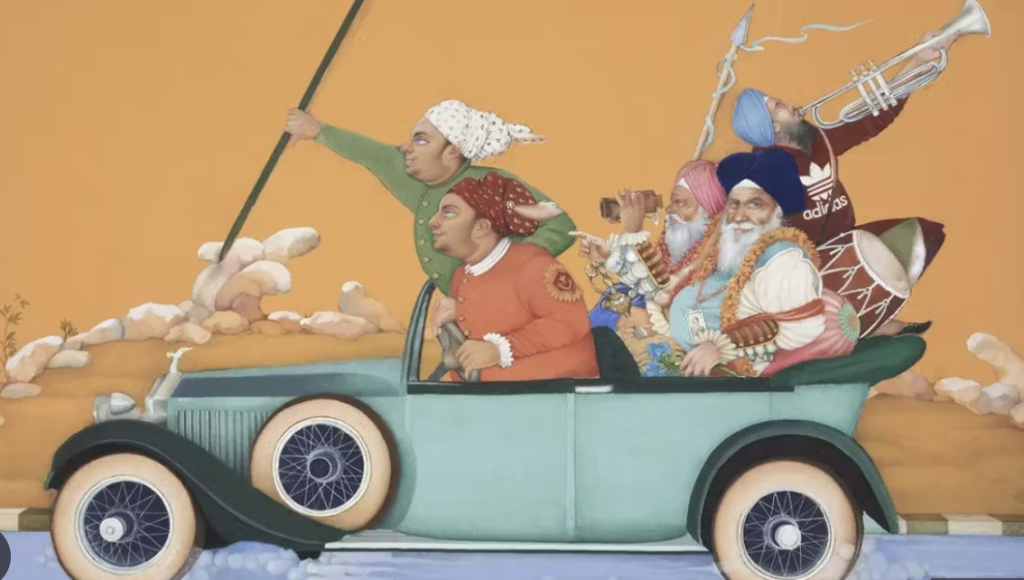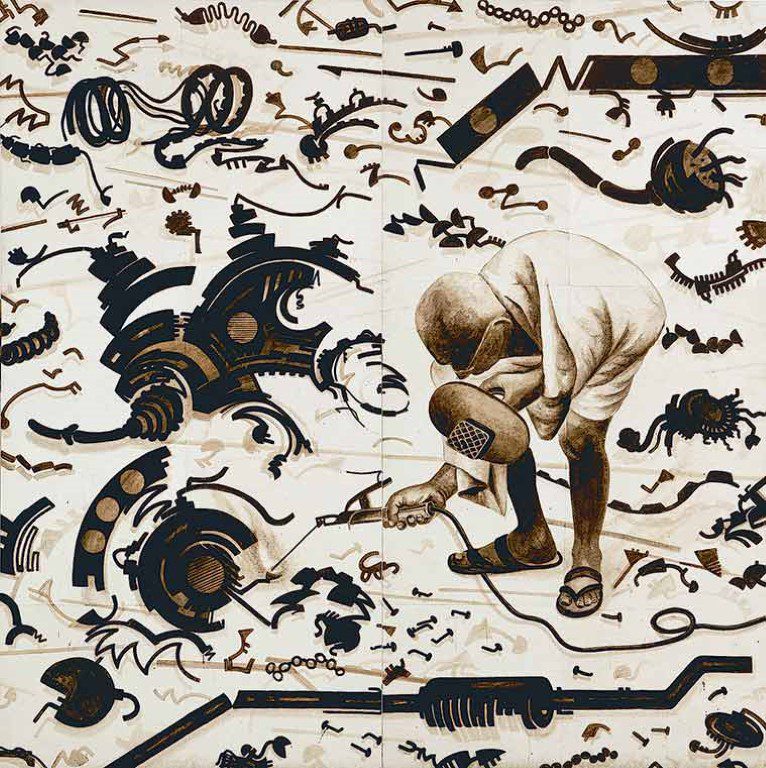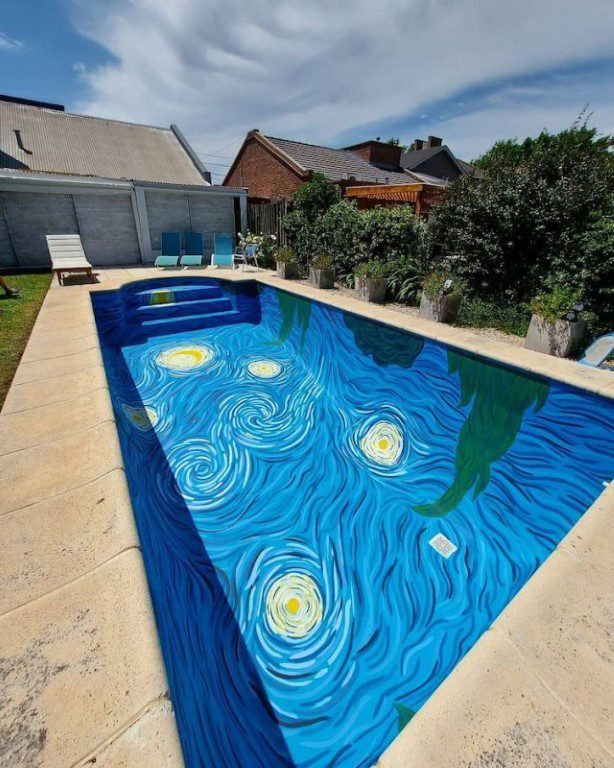In a groundbreaking effort to expand the narrative of Sikh identity in contemporary art, a new exhibition curated by Syona Puliady and Sonia Dhami is set to redefine the conversation surrounding Sikhism in the art world. Titled “I Will Meet You Yet Again: Contemporary Sikh Art,” this exhibition marks a significant departure from previous presentations by offering a multifaceted exploration of Sikh heritage, culture, and experience through the lens of 40 diverse artworks.
Diverse Artistic Expressions
Spanning a range of mediums including sculpture, photography, painting, and photographic essays, the exhibition showcases the rich tapestry of Sikhism—a socio-religious group originating in India’s Panjab region and now comprising a diaspora of approximately 25 million individuals worldwide. Unlike traditional exhibitions that focus solely on historical or anthropological aspects, “I Will Meet You Yet Again” aims to present personal narratives and contemporary perspectives on Sikh identity, touching on themes such as gender, political activism, and environmental concerns.

A Departure from Conventional Narratives
One of the exhibition’s most notable features is its departure from conventional narratives surrounding Sikh history. Rather than solely dwelling on tragic events such as the 1947 Partition or the violence of 1984, the curators explore a diverse array of topics, including Sikh heritage as artistic inspiration and Sikh history in the U.S.A. By broadening the scope of discussion, Dhami and Puliady provide a more nuanced understanding of Sikh identity that extends beyond historical trauma.
Celebrating Sikh Women
A significant aspect of the exhibition is its celebration of Sikh women, whose contributions have often been overlooked in institutional settings. Highlighted in the exhibition are two monumental tapestries by the Singh Twins, depicting influential figures such as Sophia Duleep Singh and Amrita Sher-Gil. Through these works, the exhibition honours the radical thinking and cultural contributions of Sikh women throughout history.
Remembering Tragedy and Resilience
While the exhibition does not shy away from addressing traumatic events such as the 1984 pogrom against Sikhs in India, it approaches these topics with sensitivity and complexity. Works such as Arpana Caur’s “Wounds of 1984” and Gauri Gill’s “1984 notebook” offer poignant reflections on the injustices faced by the Sikh community, while also highlighting their resilience and strength in the face of adversity.
Resistance Through Recognition
In the broader context of South Asian art history, Sikh artists have often been marginalised, their voices silenced or ignored. Through initiatives like “I Will Meet You Yet Again,” recognition of Sikh art and culture becomes an act of resistance—a means of reclaiming agency and asserting the significance of Sikh identity in the art world. As Dhami emphasises, this exhibition is not merely a collection of artworks but a monumentalisation of stories, a testament to the enduring spirit of the Sikh community.
Building a Home Through Art
In the end, “I Will Meet You Yet Again” is more than simply an exhibition; it is evidence of the ability of art to forge bonds, promote comprehension, and generate a feeling of community. Through the presentation of many viewpoints and individual stories, the exhibition encourages visitors to interact with Sikh identity more deeply and meaningfully. By doing this, it establishes the groundwork for a broader and more inclusive perception of Sikh art and culture in the field of modern art.
Exploring the Essence: A Journey Through the Iconic Artistry of Japan’s Renowned Artists





